YOU WON’T EVER NEED TO KNOW CPR BECAUSE YOU’RE NOT IN THE MEDICAL FIELD, RIGHT? Wrong.
Not only is CPR certification the responsible choice, but it’s also often the required choice. Employers, even in the non-medical fields are cracking down on employee safety and are beginning to see the crucial importance of this life-saving knowledge
It’s hard to imagine having to use CPR on a victim of cardiac arrest, but the reality of the prevalence of sudden cardiac arrest in America is shocking; more than 350,000 people in the United States experience cardiac arrest every year.
While CPR is typically associated with health care and medical careers, laypersons can too benefit from CPR certification, leverage their careers and even save a life. You’ll be surprised to find that many of these employers often call for their employees to be certified:
20 Non-Medical Careers where CPR Certification is Helpful
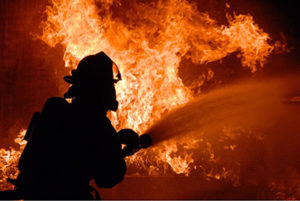
1. Fireman
The main focus of a Firemen is to save humanity from disastrous situations and promote public health and safety. Firefighters typically need to use CPR several times a week or month within their demanding practice. If you are considering a career as a firefighter, consider tackling CPR certification beforehand to demonstrate preparedness and caution to your potential employers.
2. Coaches and Athletic Trainers
Cardiac arrest doesn’t age discriminate. Anyone, even children and young adults can experience it and require CPR. Coaches and athletic trainers often push their student’s cardiac abilities, endurance, and stamina.
3. Volunteers
From volunteering abroad to simply volunteering at a local food bank, volunteering often involves physical activities that can be strenuous on the human body such as heavy lifting, poor weather conditions, or long hours without sitting. Volunteers are often asked to complete up-to-date CPR certification by coordinators because of the higher-risk environment.
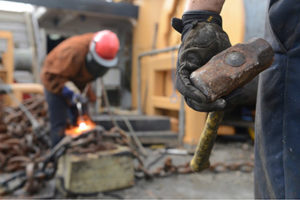
4. Construction Worker
Construction workers do it all. They pour cement, haul heavy materials, and operate complex machinery. These physically demanding conditions create a high-risk workplace, where accidents can happen. CPR certification should be a necessity to combat on the job accidents.
5. Child Care Provider
Infants and children can also require CPR, especially with the increased risk of choking. Childcare providers are essentially responsible for a child’s life during the time they are working with them. Adult CPR differs from infant and child CPR, so having the proper certification is critical and can make all the difference when it comes to saving a child’s life.
6. Electrician
A career as an electrician is considered high-risk for safety, due to their exposure to potential electric shock, high temperatures, toxic chemicals, fires, explosions, and much more. With these hazardous conditions, the ability to act in an emergency situation is a must, and knowing how to use CPR could make a huge impact.
7. Flight Attendant
Flight attendants are the only readily available staff on a flight and are often responsible for taking the proper action in the case of an emergency. We’ve all seen the horror scenes in the movies when an emergency occurs on a flight, and no passengers have medical knowledge. Flight attendants have to be equipped to use CPR and an AED during flight and while in the airport.
Did you know: The International Liaison Committee on Resuscitation has begun installing CPR kiosks in airports where the public can interactively touch up or learn CPR skills while traveling!
8. Jail and Prison Personnel
Correctional officers and other jail and prison personnel are responsible for supervising the activities of inmates, enforcing rules, aiding in rehabilitation, etc. They often experience unsanitary conditions, contraband, weapons, violence, and are constantly around people of all ages and demographics. Understanding what to do in the case of a cardiac emergency is crucial in this line of work.
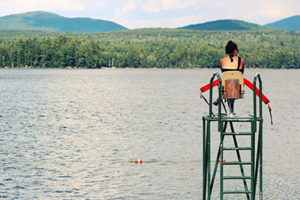
9. Lifeguard
Lifeguards are responsible for the lives of pool and beach-goers and should be equipped to know how to perform CPR, understand first aid basics and be able to use an AED as emergencies can occur both in and out of the water. There are specific rules for infant and child CPR, which should be differentiated from the more commonly learned adult CPR. From the possibility of drowning to falling, all lifeguards must be certified.
10. Nanny and Babysitter
Dedicated nannies and babysitters understand the responsibility to always put the safety of the child or children being watched first. Children are especially susceptible to CPR and first aid intervention as they are more exploratory and unaware of what is safe and unsafe. Most parents and employers looking to hire a babysitter or nanny wouldn’t consider an applicant that hasn’t been certified in first aid and CPR.
11. Server
Most servers are not required to be CPR certified. But restaurants are required to have first aid and CPR posters visibly displayed in the employee common areas. Since servers are constantly around people and in a busy environment where choking, falling, and cardiac emergencies can happen, CPR training would be a valuable skill to know. CPR and first aid knowledge should be a required skill while working in the food and beverage industry.
12. Manager
Managers, whether retail, restaurant, or small business, are responsible for employee actions, but are also typically liable for the health and wellness of the staff. Individuals are disposed to a variety of conditions that may be unsafe at work. Therefore, managers should know the proper action to save a life.
 13. Teacher and School Staff
13. Teacher and School Staff
As mentioned above, children are prone to injury, illness, and choking so CPR and first aid knowledge is often a requirement among employers looking to hire staff at schools. Since teachers and staff are responsible for other people’s children they should know the in’s and out’s of child and infant CPR and first aid.
14. Secretary
Secretaries typically oversee the lobby or common areas of the building they work in and where there may not be many people nearby. They are the first to greet customers and may be the only person they ever speak. So, knowing first aid and CPR safety could come in handy if an accident should arise.
15. Counselor
Counselors see individuals who may be experiencing difficult times when mental and physical health is diminished. Counselors typically work with one individual, couple or family during long hours. Because of these conditions, knowing how to act in an emergency is crucial.
16. Security Guard
Security guards have a wide variety of duties, which include patrolling property, monitoring surveillance, controlling traffic, etc. Essentially, security guards are responsible for maintaining a safe environment for all individuals and employees in the surrounding areas.
17. Parent
While parenting isn’t necessarily a career, the workload and responsibilities of parenting are some of the greatest out there. Like nannies and babysitters, parents should prioritize their children’s safety first and foremost and should consider becoming CPR, AED and first aid certified as emergencies, injury and illness are inevitable.
18. Yoga Teacher
The efforts exuded during yoga may test a person’s physical and mental limitations. The high-intensity stretches and high temperatures put yogis at high risk for an emergency. Knowing how to react in an emergency situation could be what saves a person’s life. Knowing how to perform CPR and first aid could be beneficial in this career field.
19. Social Worker
Like counselors, social workers work with individuals and families intimately and should always be prepared for both minor and major emergencies. At anytime something could happen where CPR or first aid is needed. Knowing the basics could save a person’s life.

20. Student
Being CPR certified as a student will not only boost your resume but will also prepare you to act in an emergency during classes, seminars and within close living quarters, like dorm rooms. Knowing how to help your fellow classmates is a vital skill that will be valuable throughout their lives. You never know what kind of emergency can pop up during a party, a sporting event or just during class. Having the skills to save a person’s life should be a required class.
According to the International Liaison Committee on Resuscitation (ILCOR), 70 percent of American bystanders feel helpless during an experience of sudden cardiac arrest, so they neglect to do anything. Without CPR, a victim can experience brain damage or death within minutes, and usually, medical help arrives too late. In a perfect world, everyone would choose to be CPR certified. First aid and cardiac emergencies don’t favor anyone, anywhere. Choosing to be certified can be the difference between getting the job, but can also be the difference between life and death.
Did you know the ILCOR updates their CPR guidelines every 5 years? Check out our blog post: Historical ILCOR Guidelines Changes to see the latest updates!
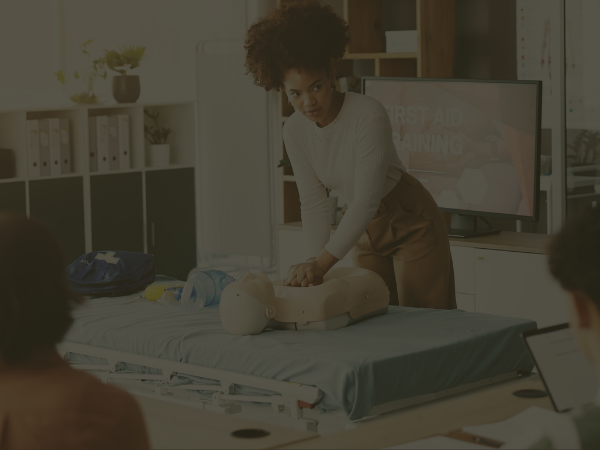
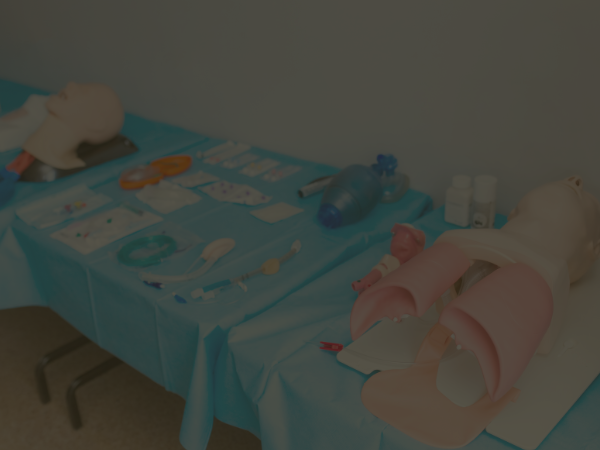





I had no idea that these careers required CPR training. The one that surprised me was the electrician, but I guess that makes sense. I’ll make sure to ask the next electrician I hire if they are CPR certified!